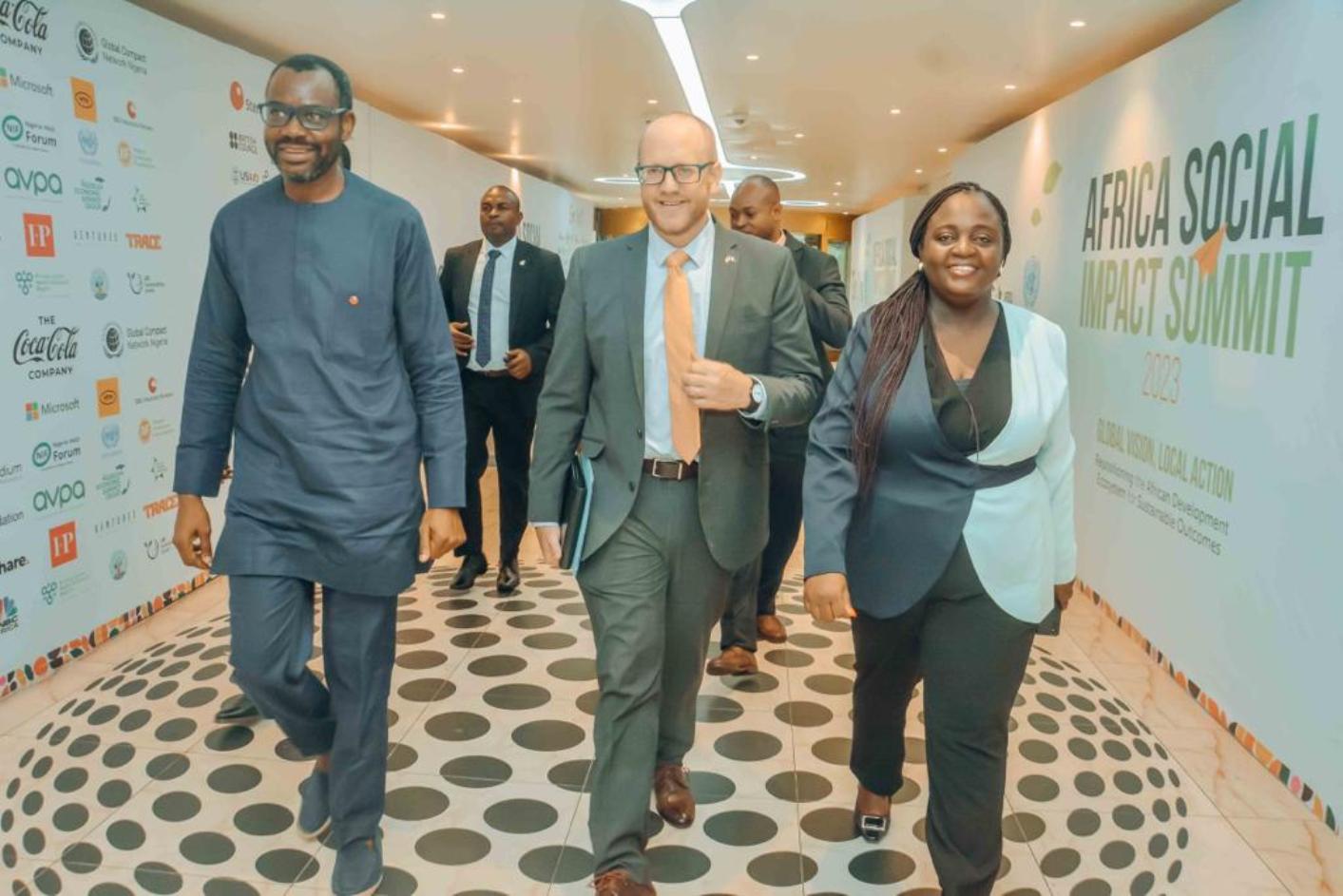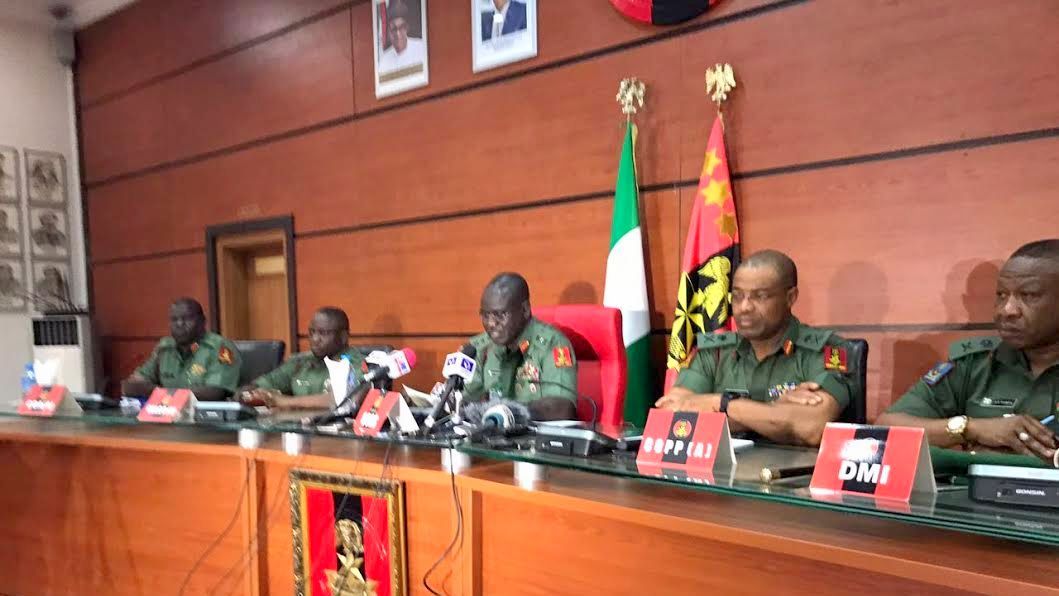African inventors and entrepreneurs are seeking 49 million dollars from investors at the just concluded Africa Social Impact Summit (ASSIS) to scale up their businesses at the just concluded summit in Lagos
This is contained in a statement signed by Mrs Olapeju Ibekwe, Chief Executive Officer (CEO), Sterling One Foundation made available to newsmen on Tuesday in Lagos.
The two-event was co-convened by Sterling One Foundation and the United Nations in Nigeria.
The summit had as its theme, “Global Vision, Local Action: Repositioning the African Development Ecosystem for Sustainable Outcomes.”
Ibekwe said that the Summit featured a deal room with pitches from 18 businesses shortlisted from over 500 applications from across Africa.
She said that the finalists drawn from from South Africa, Kenya, and Nigeria with businesses cutting across health, waste recycling, agriculture, and education had a combined investment bid of about 49.6 million dollars for expansion and production capacity increase.
According to her, the investors are observing due diligence to determine what the successful candidates will access to upscale their businesses.
The CEO noted that the gathering off key players from the government, the diplomatic community, civil society, and the public and private sectors for the summit was not just a talk shop but a meaningful engagement that would spark the desired impact in Africa.
She said that ASIS 2023, being the second edition was designed to help build partnerships and galvanise investments that would ensure that Africa makes rapid progress towards achieving the Sustainable Development Goals(SDGs).
Ibekwe said that with with the world halfway through the 15-year timeline set for the actualisation of the SDGs, there had been a call across the globe to review the work done to see what has worked and what has not, and to identify critical areas where additional measures were needed for success to be achieved.
She said that the call formed the basis of conversations at ASIS 2023.
She said that the call also resonated as former President of Malawi, Joyce Banda, Consul Generals of the British High Commission, United States of America, German, and Danish Consulates, Permanent Secretaries of the Nigeria Ministries of Women Affairs, Education, Water Resources, Environment, Budget, and National Planning, non-profit leaders, business executives, and experts from different vital sectors, including education, health, climate action, agriculture, and more, shared insights into their different sustainability strategies, results so far, and plans for the coming years.
She expressed hope for several partnerships and innovations to emerge from the summit.
The CEO said that she was looking forward to existing social impact initiatives in various rural communities accessing multilevel resources to be able to do more and spread their impact from community to community across the continent.
She added that she was humbled by the intentionality of the private sector to own the SDGs and expressed gratitude to the partnership of the United Nations as the co-convener of the summit
“Across the continent, the people are waiting for action. For far too long, Africa has been tagged – the Emerging Continent, with the continent’s potential a recurring theme of conversation, yet poverty, hunger, climate crisis, and inequality, remain visible; thus, Africa is yearning for action.
“I remain confident and incurably optimistic that there is the capacity for the type of action we seek in this room. There is the capacity to build strong partnerships for sustainable solutions to move from plans to action quickly.
” I urge everyone to interact and collaborate because the stakes are very high,” Ibekwe said.
She said that Mr Abubakar Suleiman, Managing Director and CEO of Sterling Bank Limited explained that the true essence of the Summit was to ensure that at every level, the issues and challenges resulting in widespread poverty across Africa got tackled rightly and that everyone was moving in the right direction.
“Six months from now, when we reach out for you, we want to hear that because you came here, you met someone, and you established a relationship, you rethought your approach, therefore, are getting more value from your resources, and are better at solving problems together.
” The only thing that matters is the relationships you form today and how these relationships transmit to a much better outcome than you had before you came here,” Suleiman, who is also board member of the Sterling One Foundation said.
Ibekwe said that the UN Resident and Humanitarian Coordinator, Nigeria, Mr Matthias Schmale, described the Summit’s timing as an opportune happenstance during a time of enormous challenges and great opportunities for Africa.
Schmale said that the 2030 Agenda is a clear framework for addressing these challenges facing Africa, which requires all of us to break free from business-as-usual approaches and move together faster.
“Governments, NGOs, and civil society cannot tackle our current challenges alone. If we are to secure a just, sustainable world, we need a whole-of-society approach in which the private sector plays a pivotal role,” Schmale said.
While further stating that the promise of the 2030 Agenda was now in peril, he urged more CEOs and investors to adopt the 10 principles of the UN Global Compact, hire more qualified women, and ensure that their investments focus on more than just profit to reflect social impact considerations.
He pledged support to the Nigerian Government, citing the Cooperation Framework for Sustainable Development, which both parties have agreed to, and also called on more organizations to embrace Public-Private Partnerships to leverage the strengths and capabilities of both sectors to fast-track and scale up major development initiatives.
Gov. Babajide Sanwo-Olu of Lagos State welcomed the pledge and idea and called on the private sector to take the lead in unleashing enterprise-driven innovation to create the impact ecosystem required for recovery within the state and across Africa.
He was represented by the Lagos State Deputy Governor, Dr Kadri Obafemi Hamzat.
Ibekwe said that the Permanent Secretary, Ministry of Education, Mr David Adejo, further echoed this sentiment as he stressed that the government cannot solely run the education sector.
Adejo endorsed private sector and academia partnerships to significantly restructure the curriculum and determine the kind of graduates we want.
He said that this was already underway with the International Finance Corporation (IFC), which has birthed entrepreneurship departments in all universities in Nigeria.
He added that there was still a lot more to be done to help younger children.
Ibekwe said that Joyce Banda, former President of Malawi, in her goodwill message urged the private sector in the global North to forge strong partnerships with the private sector in the global South to directly impact people within African communities.
Remarks from the US Consul General, Mr Will Stevens, the German Consul General, Mr Weert Börner, the Danish Consul General and Head of Trade, Mrs Jette Bjerrum, and a representative of the British High Commission, all highlighted the potential that Africa holds, especially with its human resources and the different ways each of these countries is supporting to harness these resources
The US Consul General, in his remarks, said it was time to begin to talk about African solutions to global problems, not just African solutions to African problems.
With partnerships from top private organizations such as The Coca-Cola Company, Microsoft, MTN Foundation, Sterling Bank, Oando Foundation, SBG Insurance Brokers, the African Venture Philanthropy Alliance, TRACE and developmental partners like the United Nations Development Programme (UNDP), British Council, United Nations Global Compact Network Nigeria, USAID-sponsored Nigeria SCALE Project, Nigeria INGO Forum, Association for the Development of Education in Africa (ADEA) and UNIDO-ITPO Nigeria, the Summit was able to convene over 1,500 physical attendees, and more than 60 leading experts in various industries, who engaged in discussions about the critical sectors of the African economy.
Amina J. Mohammed, Deputy Secretary-General, United Nations, in her goodwill message described Africa as the “most exciting business opportunity in the world, with 60 per cent of the world’s arable land and a massive population of motivated youths,
Prof. Oyebanji Oyelaran-Oyeyinka, Senior Special Adviser to President on Industrialisation, African Development Bank Group, stressed the need for an economic transformation from agriculture-based to industry and services.
Adrian Clamp, Global Head of Connected Enterprise at KPMG, said that the Summit helped to identify evidence-based strategies for improving impact investment inflow into Africa.
Other panel discussions focused on more promising ways to fund quality education access, health programs in underserved communities, strategies for financing scalable climate change solutions, increasing the operational efficiency of civil society organizations, accelerating action on water and critical action points for genuine equitable development, harnessing our youth population and their talents, and improving how we report the progress made on the continent.






